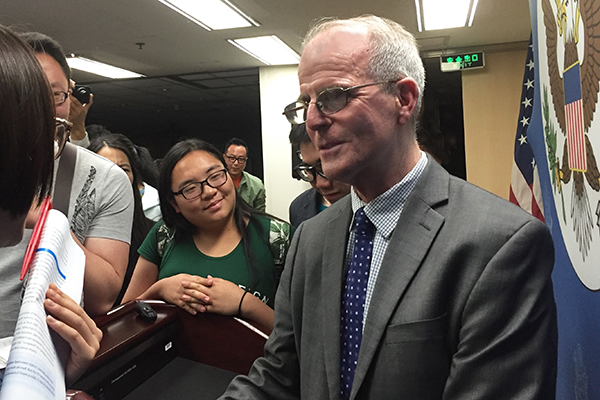A University of Louisiana at Lafayette communication professor addressed Chinese journalists and students at the request of the U.S. Embassy in Beijing for World Press Freedom Day on Tuesday.
Dr. William R. “Bill” Davie cited the courage and sacrifice made by over 110 journalists who gave their lives covering news throughout the world in the past year. He also criticized the “lapdog” tendencies of many journalists who forego policy issues and investigative reporting to write the "click bait" of sensational news and entertainment content.
Davie is spending a year in Xi’an, China, as a Fulbright Scholar and teaching at Xi’an International Studies University. He accepted the invitation from the U.S. State Department, which organized the event at the Beijing American Center for about 200 participants from newspapers and television stations, as well as journalism students attending Beijing’s elite universities.
Davie pointed to excesses in news coverage of the 2016 U.S. presidential campaign that he said has featured vulgar insults and the “politics of outrage.” He presented Pew Center data that demonstrated how harmful that kind of reporting can be on Americans’ confidence in the press, government and politicians in the United States.
Taking special note of the Panama Papers coverage in Hong Kong and China, Davie challenged the largely Chinese audience to ignore the “lapdogs of news sensationalism,” and attend to the watchdogs whose investigative journalism and policy reporting gives democracy the oxygen it needs to survive.
In commemoration of World Press Day, UNESCO gave the Guillermo Cano Award to Khadija Ismayilova of Azerbaijan, who was jailed following her series of investigative reports on corruption implicating her country’s president and first family. She broadcast her reports on Radio Free Europe/Radio Liberty; the award is named after assassinated Colombian journalist Guillermo Cano, who was killed in 1986 after reports connecting public officials in Bogota to drug cartels.
